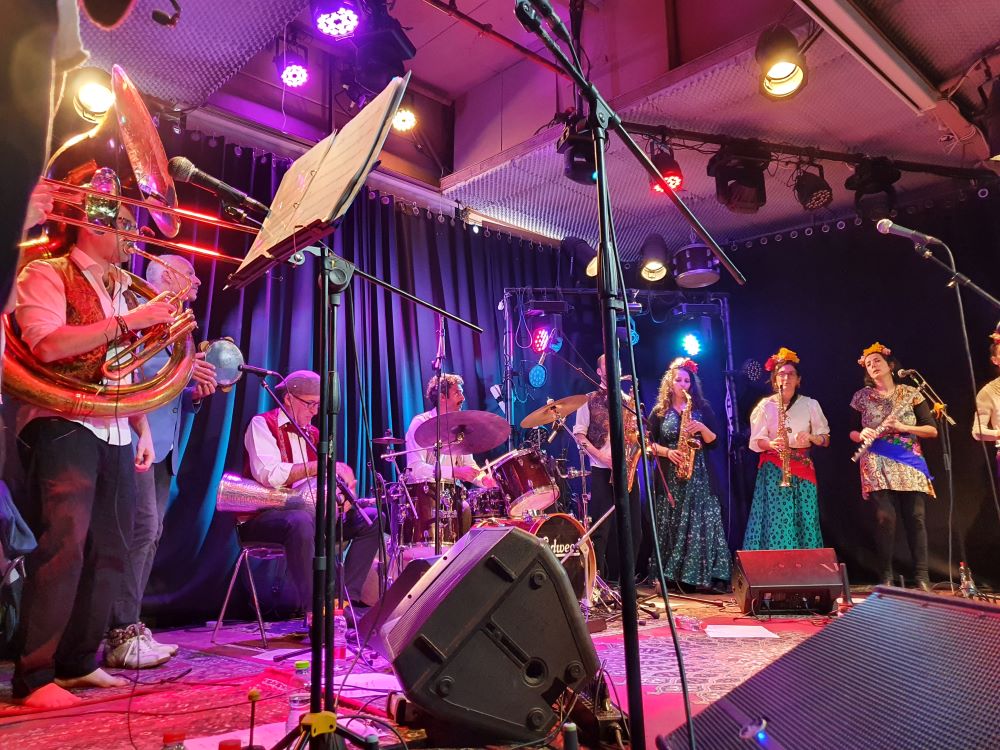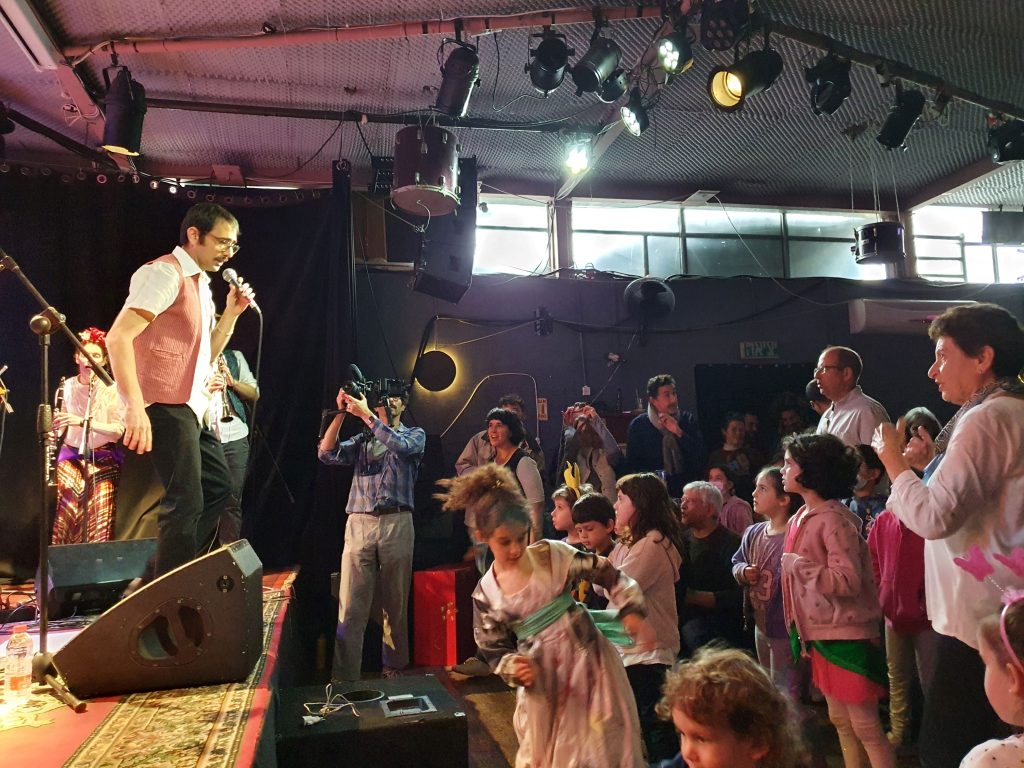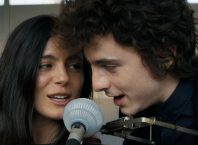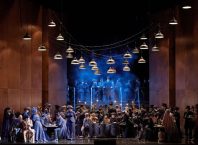
Amour, tolerance, partager – love, tolerance, sharing – these were the only words I caught from Julie Rosenberg’s opening words at the concert celebrating PamPah Orchestra’s first anniversary. But those words were more than enough, expressing as they do the essence of the orchestra and the feelings they awaken in their listeners. The concert took place Friday afternoon, February 25th, at The Zone, and the orchestra’s lively Balkan-Romani inspired music transformed the edgy, urban venue into a community gathering on the village green, with everyone – from the youngest babes in arms to the white-haired sages – smiling and dancing.*
Their origin story, as told by Roni, begins with saxophonist Aviv, who returned to Israel after a sojourn in France and posted an announcement on facebook saying that she was looking for musicians who would be interested in playing together in an ensemble, performing Balkan, Turkish, and Roma music. Coming together to play during the COVID pandemic, to quote Ronen, “we discovered that we really like one another.” And that enjoyment is felt throughout their music. The PamPah Orchestra are: Clarinets – Ori Ehrman, Julie Rosenberg; Saxophones – Aviv Or Meshulam, Gali Yozov, Gal Maor; Trumpets – Roy Tsouk, Ronen Sasson, Ronen Payevsky; Flute – Tony Haviv; Trombone – Roni Klimowski; Sousaphone – Adam Yodfat; Drum Set – Amir Pinhasi; Riq – David Buchbut; Darbuka – Erez Tsalik.

The folk tunes they played were fun and bouncy, infused with rhythms that soon had the audience up on their feet and dancing. The rousing Chaye Shukriya (Roma – pretty girl) was a lively wild dance tune, with Ronen leading a call and response on the chorus. In addition to traditional or folk tunes, the concert featured the playful music from the film Black Cat White Cat directed by Emir Kusturica (1998); Limonchiki (new spelling confirmed by band member), a love song to lemons, with the audience joyfully joining in on the chorus; and Misirlou, the ubiquitous enticing song that has its origins in the era of the Ottoman Empire, yet I wondered if many in the audience recognized it from its presence in Tarantino’s Pulp Fiction.
The members of this creative brass and wind orchestra also compose music, and three original compositions were performed at Friday’s concert. Ba Halilit (Hebrew – on the recorder), composed by Ori Herman, the orchestra’s musical director, was a carefree, swaying, happy tune that reminded me of spring breezes. Falafel, composed by Roy Tsouk, with its very Middle Eastern title, featured the rhythm of the darbuka, and had a jazzy, contemporary feel. Shahak (Hebrew – skies), was composed by Adam Yodfat to a poem by Moses Ibn Ezra (c.1060 – c.1139), a poet of the Golden Age of Spain who was one of the first to write secular poetry as well as liturgical. The lyrics (in Hebrew) may be found on the Ben Yehuda Project website. The poem describes a vision – seeing the stars as a garden of flowers in the sky, and there’s a joyful, yet meditative sound to the music. Primarily an instrumental piece, the words were sung only towards its close, by the entire orchestra, accompanied only by the rhythm of their handclaps and the darbuka.
There is a wonderful harmony to the PamPah Orchestra, and within the different pieces they performed, each solo expressed a different voice within that harmony, yet each still felt very much a part of the whole, like the many different colors and textures of threads that compose a tapestry. Amour, tolerance, partager – PamPah Orchestra is all of that, and I would add one more word: joy.
Follow the PamPah Orchestra on facebook – happily they have more concerts coming up soon: Purim party at Alla Rampa on March 16th and on Nahalat Binyamin on March 18th.
*the only drawback to the very, very, full house was that I couldn’t move to get more (better) photos without getting in the way of tiny, dancing, creatures and obscuring their view, which I would never want to do.





